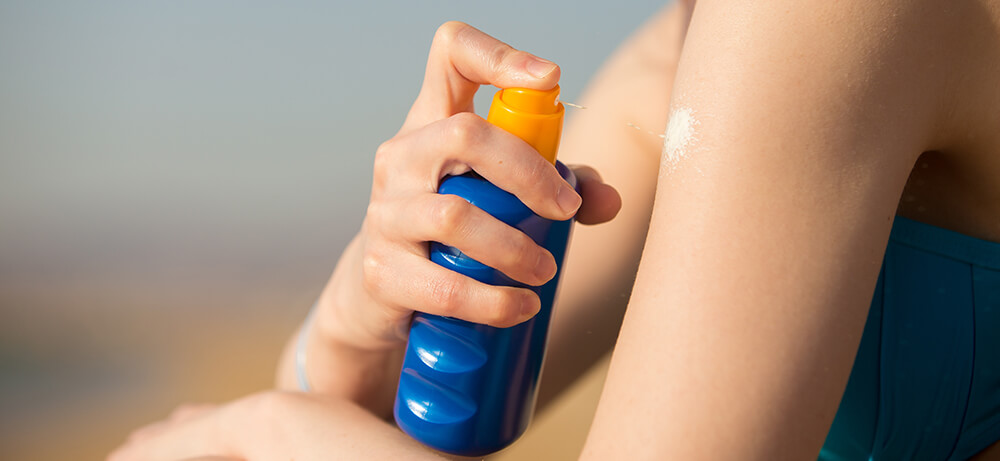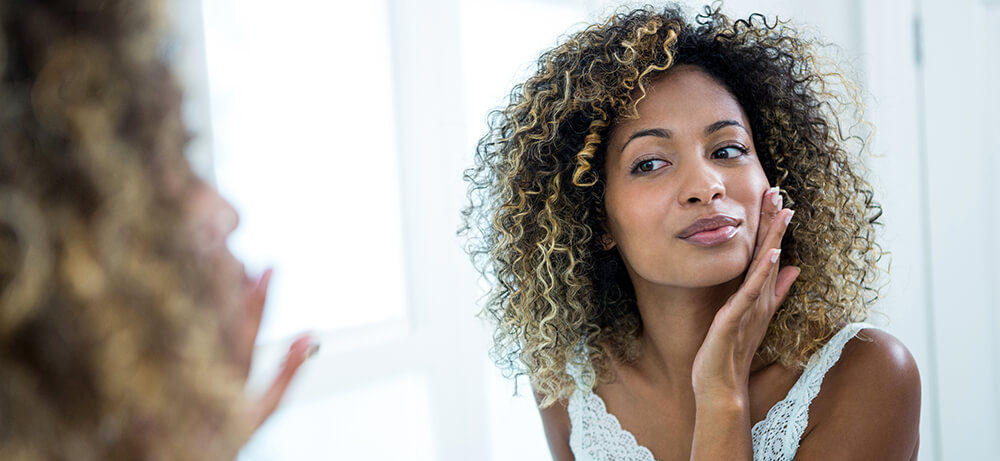May is skin cancer awareness month, so before it’s over, we want to make sure you’re doing what you can to prevent skin cancer in your life. Skin cancer is one of the most diagnosed types of cancers worldwide, and being aware of how to spot common signs is just as important and preventing it. All skin types, shades, and ages are susceptible to skin cancer and it is imperative that everyone, not just the fair-skinned or those who think they are too old to be affected, to be diligent and take care of the skin they’re in. There are many types of preventative care; the following are a few of the most common.
Sunscreen
The best defense against skin cancer is taking preventative measures to keep your skin safe. One of the most commonly used and effective ways to keep your skin safe is the daily use of sunscreen. To pick the best sunscreen for you, make sure you know your skin. If you burn easily, reapply more often and use a sunscreen with a higher Sun Protection Factor, or SPF.
It can be difficult to understand what SPF truly means, so here’s a quick breakdown. As an example, SPF 15 means that you get 15 times longer protected time in the sun than you would with no sunscreen. So if your skin burns after 10 minutes in the sun with no sunscreen, you now have 150 minutes. That being said, SPF 30, 80, and even 120 are by no means “stronger” than one another at protecting from UV rays; they simply last longer without reapplication. Make sure to apply sunscreen 15-30 minutes before sun exposure and take into account that swimming and sweating can mean you will have to reapply more.
Recognizing how sunscreen truly works is another aspect most people don’t understand. From what is it actually protecting your skin? Most cheap sunscreen only protects from UVB rays. These are the rays which cause sunburns by damaging the superficial layers of the skin. However, it is important to look for sunscreen which also protects from UVA rays. These, while they don’t typically cause a surface burn, penetrate deeper into the skin and can cause deep and lasting damage on a spectrum from premature aging of the skin to malignant skin cancer.
Self Exams
Knowing your skin also means knowing what it looks like and checking for subtle differences. Self-examination is one of the best ways to detect skin cancer early. Standing in front of a full length mirror, check your whole body, taking note of freckles and moles, blemishes and marks. Use a smaller, hand-held mirror to look at hard to see spots like the back of the scalp and neck, the backs of the thighs, and the shoulders. Familiar marks are important to take note of so that if anything changes in shape or color you can talk to your doctor. If any new marks appear over time it is important to talk to a doctor about these as well.
- Typically, marks that should cause concern are as follows:
- Flat, hard areas that are pale or yellow in color
- Raised, itchy, red areas
- Translucent or pearly, red or pink bumps that may have brown, black, or blue areas
- Pink growths with raised edges and a low center, possibly with visible blood vessels coming from them
- Open sores
- Wart-like growths
- Rough red patches which may be crusted or bleeding
- Raised growths/bumps
Talking to your Doctor
If something seems suspicious, it is best to bring it to the pros. Your doctor will ask when the mark appeared or changed and about your relationship to the causes of skin cancer (how often/how much sun exposure you get, tanning practices, etc). Your primary doctor may refer you to a dermatologist or send in a sample for biopsy. A biopsy simply means that a sample of skin is taken and observed under a microscope to check for cancer or pre-cancer. If either is detected, further steps such as minor surgery to remove the infected skin or imaging tests to make sure the cancer hasn’t spread will be determined by you and your doctor.
Final Thoughts
The best way to stay safe from skin cancer is to prevent it. With the sun just starting to take control of the skies and as the temperature starts to rise, it is imperative you make sure you take care of your skin at all costs. By taking preventative measures like wearing sunscreen and doing self-tests as well as talking to your doctor if something seems off, you can make sure your summer is spent frolicking, not fretting.
Want to learn more?
Have questions?
Want to schedule a consultation?
Want to learn more?
Have questions?
Want to schedule a consultation?
Want to learn more?
Have questions?
Want to schedule a consultation?



